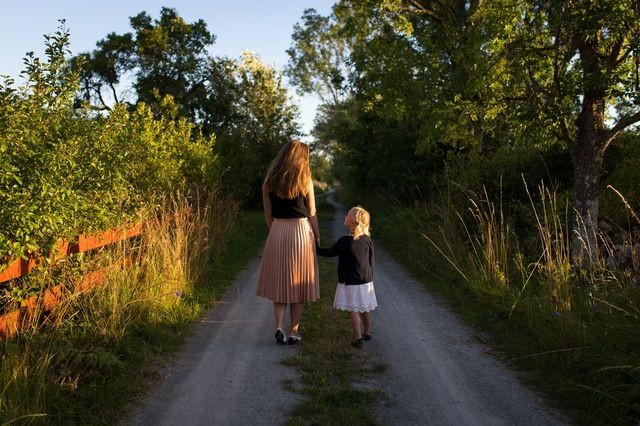The Evolution Of Menopause In Women: Mother-Daughter Competition May Explain Why Women Stop Getting Pregnant In Old Age

Monthly periods help prepare a woman’s body for a fertilized egg if she becomes pregnant, but there will come a day in every woman's life when she reaches menopause and the periods disappear. After that point, women continue to live decades beyond their fertility, and a new study in Current Biology suspects why.
Researchers at the Universities of Exeter, Cambridge, and York (UK), and the Center for Whale Research (USA) and Fisheries and Oceans Canada, believe the evolution of menopause is tied to easing mother-daughter conflict.
Read: What Early Onset Menopause Means For Your Health
"Females of many species act as leaders in late life but continue to reproduce, but this new research shows that old females go through the menopause because they lose out in reproductive competition with their own daughters," said Professor Darren Croft, of the University of Exeter, in a statement.
Humans, short-finned pilot whales, and killer whales are the only three mammals that go through menopause. Female killer whales usually stop reproducing in their 30s or 40s, but just like humans, they can live for many decades following menopause. Meanwhile, human ovaries tend to halt by age 50 or even younger, yet women continue to live healthy lives for decades.
To explore this evolutionary trait, researchers used 43 years of data gathered by the Center for Whale Research and Fisheries and Oceans Canada, and found older mothers suffer much higher costs when competing to reproduce alongside their daughters. When females of two generations breed at the same time, the mortality of older mothers' offspring is 1.7 times of young mothers' offspring.
The "reproductive conflict" that arises between mothers and their own female offspring in killer whales is linked to food sharing. Killer whales have a matrilineal clan structure, which includes the matriarch's offspring, and the next generation of offspring as well. Matriarchs share salmon among their clan, with the offspring often relying for years on their mothers for food. The matriarch uses her knowledge and hunting skills to boost her family’s chances of survival, according to National Geographic.
This becomes an issue when the mother, and her daughter give birth at the same time, since they will end up competing against each other for food.
It's been previously predicted that conflict between generations could explain why the female of some species, like humans, go through menopause. We know why older females live long after reproduction, and most importantly why they stop breeding in the first place.
Read More: 8 Vitamins To Naturally Treat Menopause Symptoms And Balance Out Hormone Levels
"[O]ur new work shows that if an old female killer whale reproduces her late-life offspring suffer from being out-competed by her grandchildren. This, together with her investment in helping her grandchildren, can explain the evolution of menopause," said Dr. Daniel Franks, co-author of the study from the University of York.
This also ties into the “grandmother hypothesis,” which suggests women outlive their reproductive age to improve the survival and reproduction of their grandchildren. It’s a method that allows the grandmother to continue the passing of her own genes, including those that contribute to longevity. A 2004 study in Nature found women who live longest after menopause ends tend to have more grandchildren because their daughters are more equipped at having and raising kids.
Perhaps not coincidentally, women stop reproducing when the next generation starts to reproduce. It may be more advantageous for women to focus their reproductive energy to help their descendants, or their daughters.
Source: Croft DP, Johnstone RA, Ellis S et al. Reproductive Conflict and the Evolution of Menopause in Killer Whales. Current Biology. 2017.
See Also:
Symptoms Of Menopause May Be Worse For Women Who Experience Verbal, Emotional Abuse



























